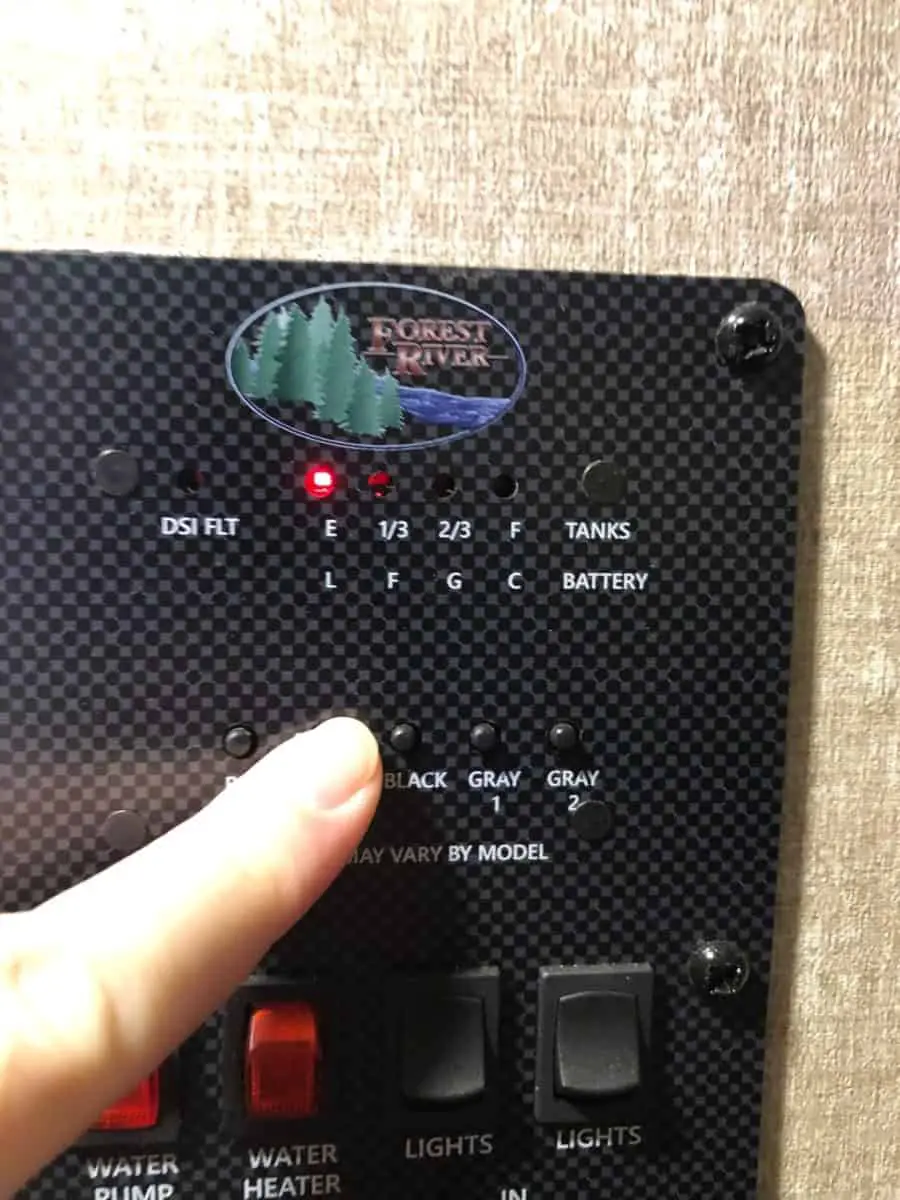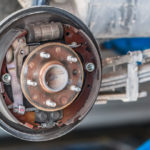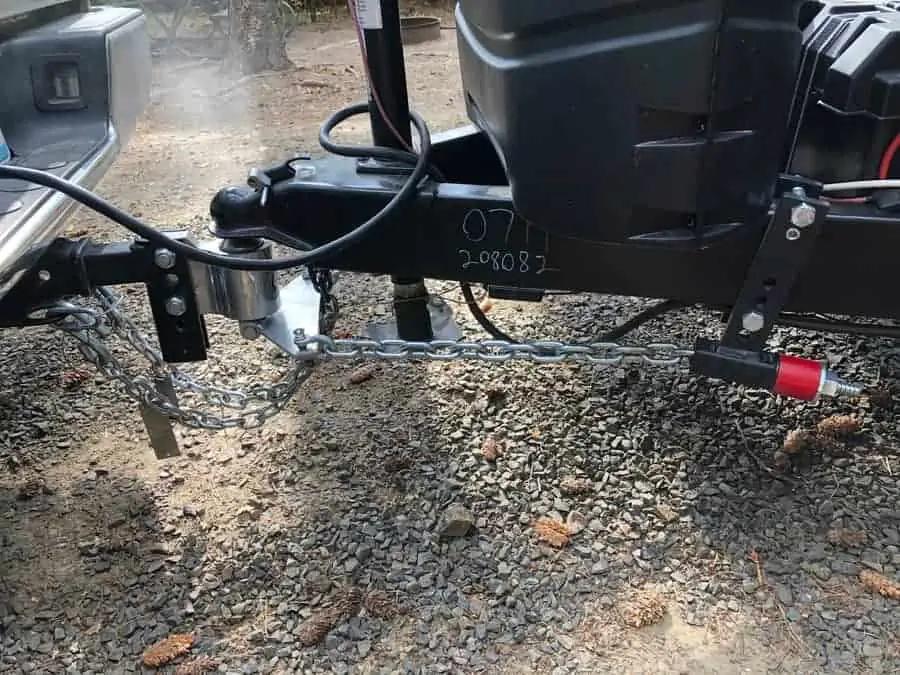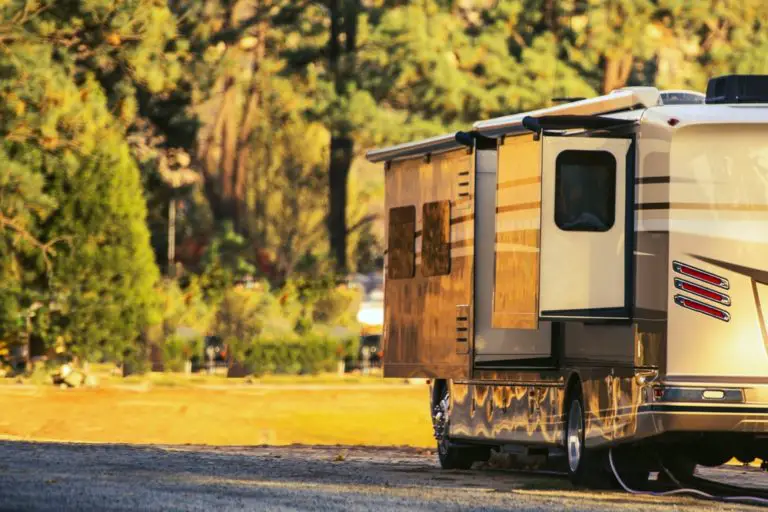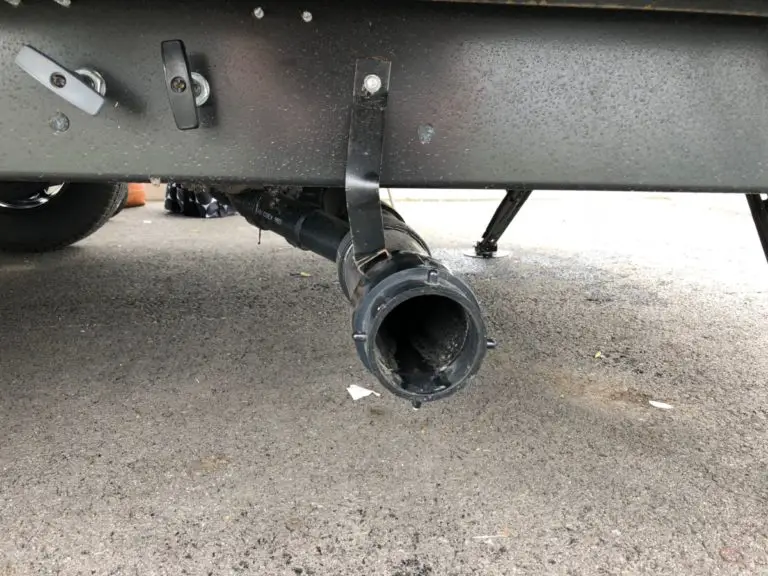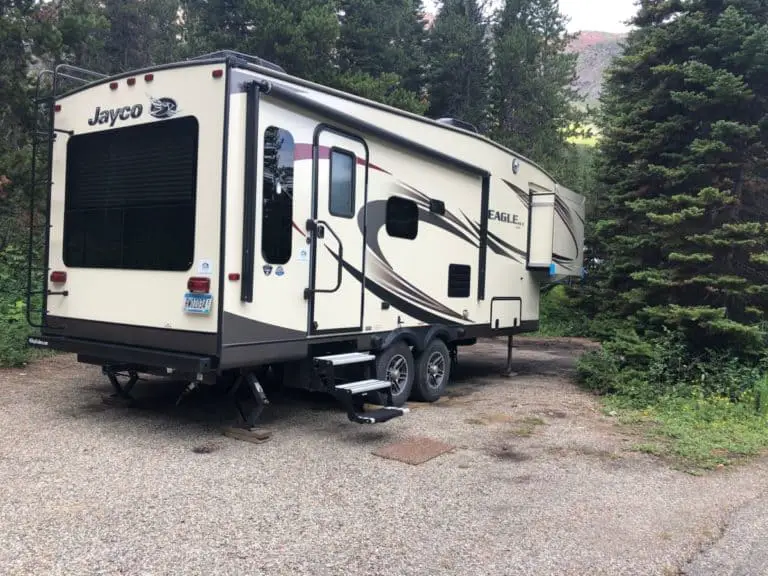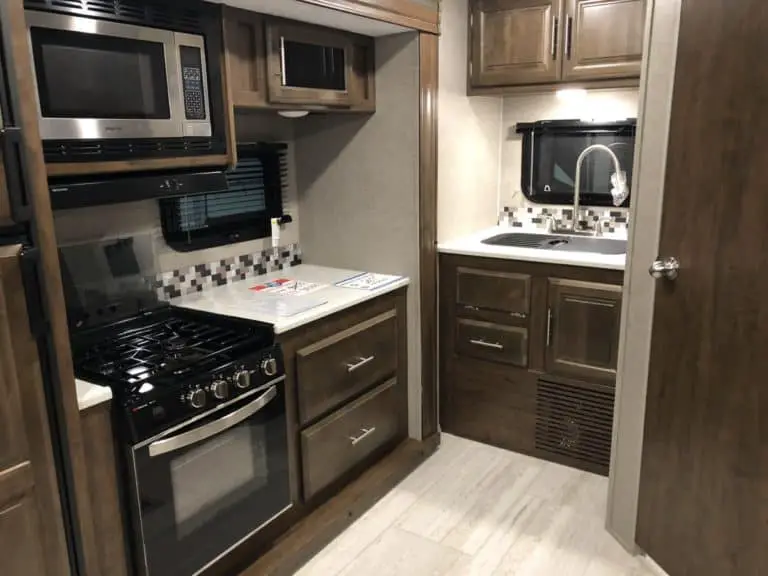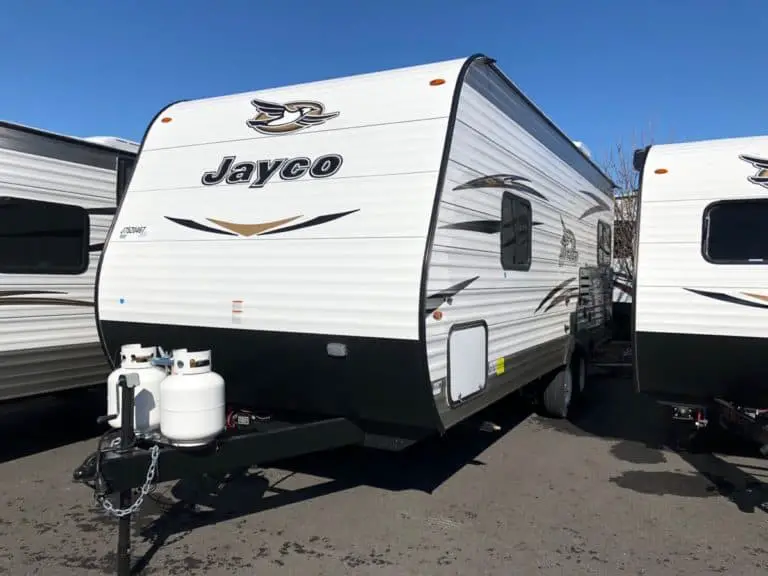How Long Do the Brakes Last on a Travel Trailer?
When you purchase a travel trailer, it is absolutely necessary to have brakes on it. Regular vehicle brakes are not equipped to stop both the vehicle and a trailer that can weigh between 1,200 and over 9,000 lbs., not including the weight of extra items you put inside the trailer.
Travel trailer brakes typically last 12,000+ miles. Some users have over 40,000 miles on their brakes without issue. The amount of use, how aggressive you drive, and how often you need to slam on the brakes determine how long trailer brakes will last on your RV.
Travel trailer brakes are crucial when towing because they will aid your vehicle’s brakes in stopping the heavy trailer, making it a lot safer to tow. They are also required by law when exceeding certain weights, which vary by state. They reduce the wear on your travel trailer and tow vehicle brakes, saving you a lot of money in the long run. This becomes even more important as the weight of the trailer increases.
Keep in mind that under federal law you are also required to have an emergency breakaway system for your travel trailer.
Eventually, you will wonder how long your brakes will last. There are a number of variables that can determine the life of your brake’s individual parts. The general rule of thumb suggested by mechanics is to check your brakes before every outing with your trailer.
Regardless of the type of brake you have, there are a lot of different ways to predict how many miles or how long your brakes will last. The factors that are at play when it comes to brake durability, like your driving habits, road quality, the weight of the trailer, and the type of braking system can each have a different effect on the wear. The following list describes the way each factor affects the wear on your trailer brakes.
Factors That Affect Brake Wear
- Driving habits – The way you drive has a significant impact on the durability of your trailer brakes. Do you travel faster than the speed limit? This means you press on your brakes harder when you slow down. Do you tailgate? You will use your brakes more often and wear them down faster if so.
- Types of brakes – The two types of brakes are discussed below and have different levels of durability.
- Weight of travel trailer being towed – Travel trailers vary by weight depending on how long they are and how much weight they contain inside them, so your brakes should be higher quality, which in turn lasts longer.
- How often you drive – The more you drive, the more you use your brakes.
- Type of road – Sometimes roads are straight and smooth, bumpy, hilly, mountainous, or hazardous. This affects how often you use your brakes. Highways require a lot less braking than local roads.
Types of Brakes & How Long They Last
There are two types of brakes for travel trailers: electric and hydraulic. Each comes in two forms: disc or drum brakes. Electric brakes respond to a brake controller in the towing vehicle and hydraulic brakes rely on the trailer’s activator and brake fluid to know when to slow down. Below are some advantages and disadvantages of each type of brake and how long they last.
Electric Drum Travel Trailer Brakes
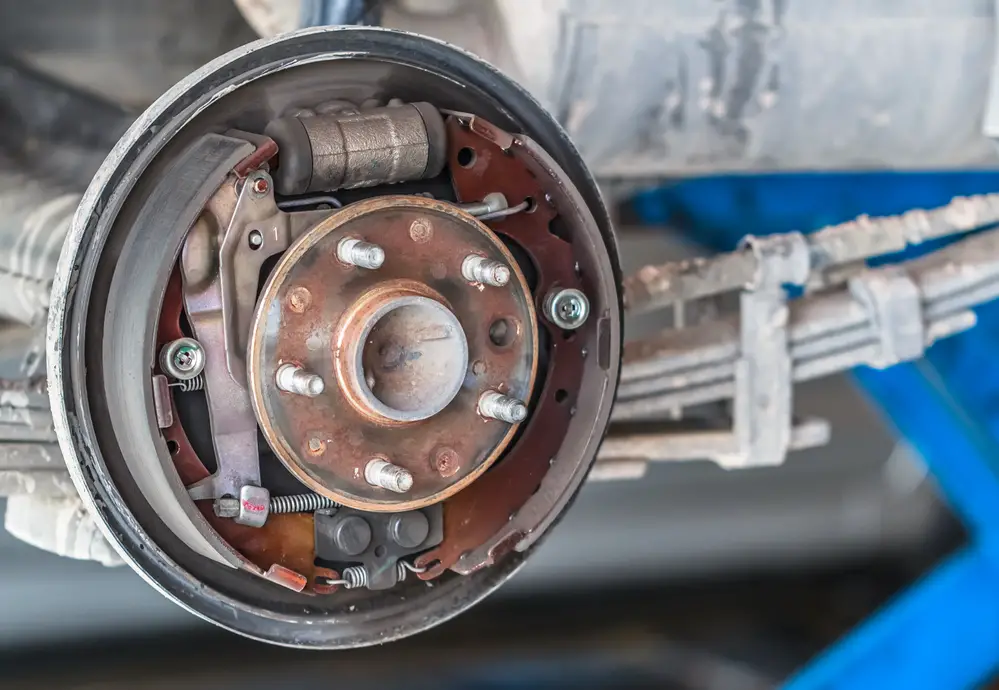
Electric brakes are the most frequently used brake system for travel trailer owners. They provide more ease of access and are simpler than their counterpart, the hydraulic brake. However, you must have a brake controller in the towing vehicle in order to operate it. Brake controllers usually cost $60-$340, not including the cost of labor. Fortunately, some newer truck models have brake controllers installed in them already, which can save you money.
Some of the benefits of using electric brakes are that it causes little wear, the efficiency of braking increases, and it is more convenient. Users of electric brakes enjoy the user-friendliness and long wear of these types of brakes. They are also cost-effective.
One type of electric brake is the drum brake. This type of brake has some disadvantages because it is the most outdated type. They experience brake fade more often than other types, which is when repeated use in a rapid succession greatly reduces the effectiveness of the brakes. They also require more parts to use. These can last for three to four years when used an average amount of 5,000 miles per year.
Electric brakes have been known to last as long as tires: 45,000 to 50,000 miles or three to four years. However, mechanics suggest having parts checked for wear every 12,000 miles or one year. They also suggest adjusting them every 3,000 miles to reduce wear.
Hydraulic Travel Trailer Brakes
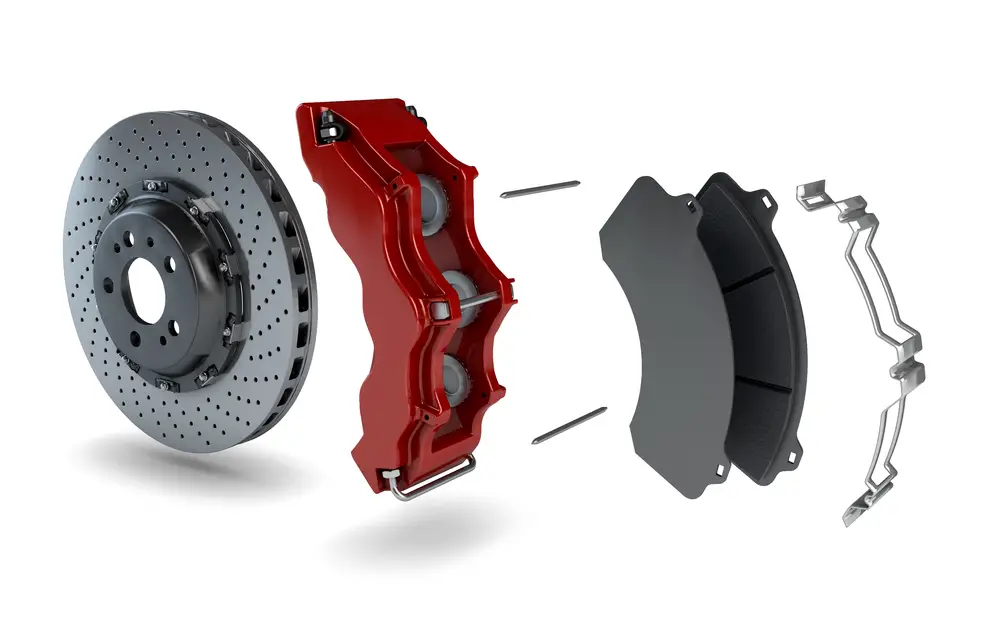
If you are looking for a cost-effective and easy to control system, then hydraulic-or surge-brakes are the right ones for you. Some experts suggest upgrading to hydraulic disc brakes because they are easy to install and are the safest option for braking. They suggest them over the electric brakes because they outperform when stopping and have less brake fade than its electric counterpart.
The two biggest benefits of surge brakes are that they do not need an electrical connection to your vehicle and they are automatic systems. However, they are harder to install than electric brakes, which will cost more in labor.
Hydraulic surge brakes can last a year or more depending on the wear you put on them. Some have reported having the brakes on for two years, and others report having them adjusted after only six months. This, of course, depends on the aforementioned factors that affect brake wear.
Disc Brakes vs Drum Brakes
As mentioned before, trailers can have either disc brakes or drum brakes installed from the factory. Disc brakes are more expensive and not available on every trailer, but they are far superior, have fewer parts than drum brakes, and are easier to maintain. Disc brakes are like those installed on modern vehicles with a brake caliper and rotor and do not have to rely on trailer brake magnets which can fail or become weak based on their electrical connection.
Drum brakes are good in most applications, but if you want the best performance choose disc brakes as they typically will last longer and perform better than drum brakes.
The highest-ranking braking system controller suggested by us is the Tekonsha P3. We have used this for several years and it has all of the options you would want in a controller.
The general rule of thumb to remember is that you should check your brakes every time you tow the trailer. Brakes can vary in price and type, so you should check with a mechanic before you choose a system. Their durability is dependent on a variety of factors, which all take a toll on your brakes. Selecting the right brakes according to your chosen mechanic and regularly checking them will ensure the highest level of safety and reliability when you head out on the road.
Be the first to be notified about FREE tips, hints, coupon codes, and email-exclusive information. All for FREE!


